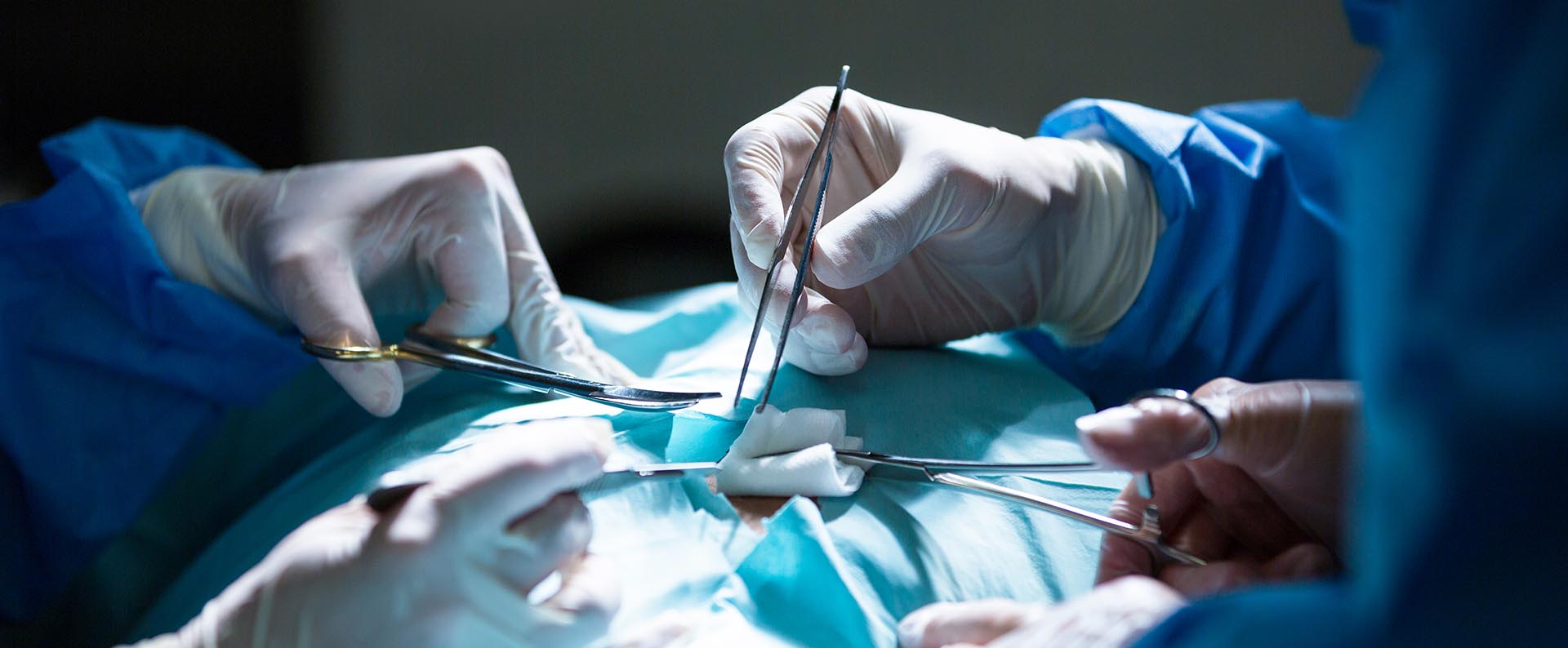
Indianapolis Medical Malpractice Attorneys
The practice of medicine requires many years of rigorous study and training. Physicians are constantly honing their craft as new technologies and breakthroughs become available to increase the quality of human life. This belief in continuous learning is represented in the Hippocratic Oath, which many doctors recite prior to beginning their medical practice. The oath is an ethical and professional agreement that is held sacred by physicians. While there are several variations of the oath, the basic tenants of “I will not withdraw from my patients in their time of need” and “I will work to benefit my patients to the best of my ability and I will do no harm or injustice to them” are present in most versions.
Indiana Medical Malpractice Case Examples
Our firm has handled an array of complex medical malpractice cases throughout Indiana and surrounding states, as well as assisted with legally-significant cases across the country. Below are several examples of the types of cases that our medical malpractice attorneys have handled.
A
B
- Bile Leak After Laparoscopic Cholecystectomy
- Birth Injuries
- Blood Draw Negligence
- Blood Thinner Overdose
C
D
- Delayed Diagnosis / Acute Appendicitis
- Dental Malpractice
- Dental Malpractice: Retained Broken Dental Instruments
- Dental Malpractice: Severed Nerve from Oral Surgery
E
F
- Failure To Clear Tracheostomy Tube
- Failure To Diagnose Appendicitis
- Failure To Diagnose Bladder Cancer
- Failure To Diagnose Brain Bleed
- Failure To Diagnose Buerger’s Disease
- Failure To Diagnose Hyponatremia
- Failure To Diagnose Developmental Displasia of the Hip
- Failure to Diagnose Detached Retina
- Failure To Diagnose Kidney Failure
- Failure To Diagnose Malfunctioning Shunt In Hydrocephalic Child
- Failure To Diagnose Monteggia Fracture-Dislocation
- Failure To Diagnose Throat Cancer
- Failure To Timely Cardiovert Patient Resulting In Stroke
- Failure To Treat Podiatry Surgery Infection
H
I
L
M
N
- Negligent Cortisone Steroid Injections
- Negligent Wound Care Treatment
- Negligently Performed Amniocentesis/Amnioinfusion
- Negligently Performed Cleft Palate Surgery
- Negligently Performed Tethered Spinal Cord Surgery
- Nursing Home Neglect
P
R
- Radiologist Failure to Diagnose Tumors
- Residential Treatment Center Malpractice
- Retained Foreign Object After Carotid Artery Angioplasty and Stent Placement
- Retained Foreign Object After Hysterectomy
- Retained Foreign Object After Stent Placement
- Retained Foreign Object Surgical Drain
- Retained Foreign Object / Surgical Sponge / Abdominal Surgery
S
U
- Unnecessary Defibrillator and Pacemaker Implantations
- Unnecessary Heart Catheterization, Stenting, or Coronary Artery Laser Atherectomies
- Unnecessary Cardiac Catheterization, Angiogram, or Stenting
- Unnecessary Cardiac Devices CRT-D, CRT-P, ICD
- Unnecessary Implantation of Cardiac Pacemakers
- Unnecessary Sinus Surgeries / Physician Abandonment
- Unnecessary Tooth Extractions
What is Medical Malpractice?
Unfortunately, mistakes happen. Whether through ignorance or negligence, medical malpractice has a profound effect on patients and their families. Medical malpractice cases can involve claims against doctors, hospitals, dentists, nursing home personnel, and a host of other healthcare providers. From a legal standpoint, medical malpractice occurs when a doctor, hospital employees or other caregivers fall below the standards of care when treating a patient. The standard of care refers to the watchfulness and attention that a reasonable person would exercise under similar circumstances. From a real-world perspective, malpractice occurs when doctors violate any one of the many patient safety rules that are in place to guide doctors in the care of patients, causing injury to the patient. Patient safety rules deal with the proper identification of patients, the safe use of medicines, the prevention of infections, and the prevention of surgical mistakes to name a few examples. When the standard of care is not met, a patient can suffer severe injury or other adverse consequences. A patient is entitled to bring a claim against the doctor, hospital, dentist, or other health care provider for damages resulting from professional negligence. Damages for medical malpractice claims include compensation for past, present, and future medical expenses, pain and suffering, emotional distress and anguish, disfigurement and/or deformity, disability, lost wages, impairment of the patient’s ability to function as a whole person, and loss of consortium.
Our medical malpractice attorneys have been litigating cases for over 40 years and have handled a variety of Indiana medical malpractice claims. We have the experience and resources necessary to fight for your rights and help you get the compensation that you deserve. If you believe that you or a family member has been injured as a result of medical negligence, contact our office now for a free consult. We will be happy to discuss Indiana medical malpractice law with you and help you evaluate your claim.
The Medical Malpractice Professionals at CohenMalad, LLP

David J. Cutshaw has been litigating medical malpractice cases since 1982.
Assisting him in this practice area are esteemed attorneys Greg Laker, Justin Kuhn and Gabe Hawkins. Their experience is further complemented by the contributions of accomplished Nurse Paralegal Tracie Tanner, who brings extensive knowledge and a meticulous approach to every case. Together, this team ensures that each client receives the utmost attention and comprehensive legal support they deserve.
Medical Malpractice FAQs
- Can a Non-Patient File a Medical Malpractice Claim?
- What Effect Does Direct-To-Consumer Drug Advertising Have on Patient Safety?
- Do Fast Drug Approvals by FDA Help or Harm Patients?
- What is a Compounding Pharmacy and Why Doesn’t the FDA Oversee It?
- Is Indiana’s Cap on Medical Malpractice Damages Unconstitutional?
Prior results do not guarantee future outcomes. Case results vary dramatically depending on specific facts and circumstances.




